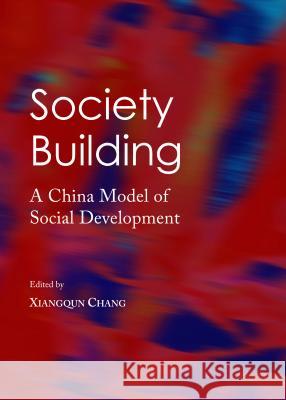Society Building: A China Model of Social Development » książka
Society Building: A China Model of Social Development
ISBN-13: 9781443856454 / Angielski / Twarda / 2014 / 185 str.
In China's future social development, there is likely to be an interest in society building with a combination of top-down and bottom-up approaches, along with a deepened level of social reform and the construction of a harmonious or co-symbiosis society. This represents one of China's social development models, and is reflected in the Communist Party of China (CPC) and state policy. The term society building was proposed by Chinese thinkers nearly one century ago, and has been used by Chinese sociologists to study Chinese society since the 1930s. In the 21st century, society building has been approached as an interdisciplinary concept by Chinese social scientists. The main concern of China for its future social development is to enhance its people's wellbeing and encourage them to build Chinese society in innovative and creative ways. This volume showcases the latest research of non-Chinese scholars relating to this indigenous concept and to China's social development in the global context. It tackles the following topics: the assessment of the social impact of infrastructure projects; China's reforms and its changing political system; whether or not the Singapore model is suitable for China to follow; soft power through education; and boundaries, cosmopolitanisms and spaces in Chinese and international cities. The book will be of interest to academics, professionals, practitioners, university students and the general public seeking a comprehensive understanding of China.











